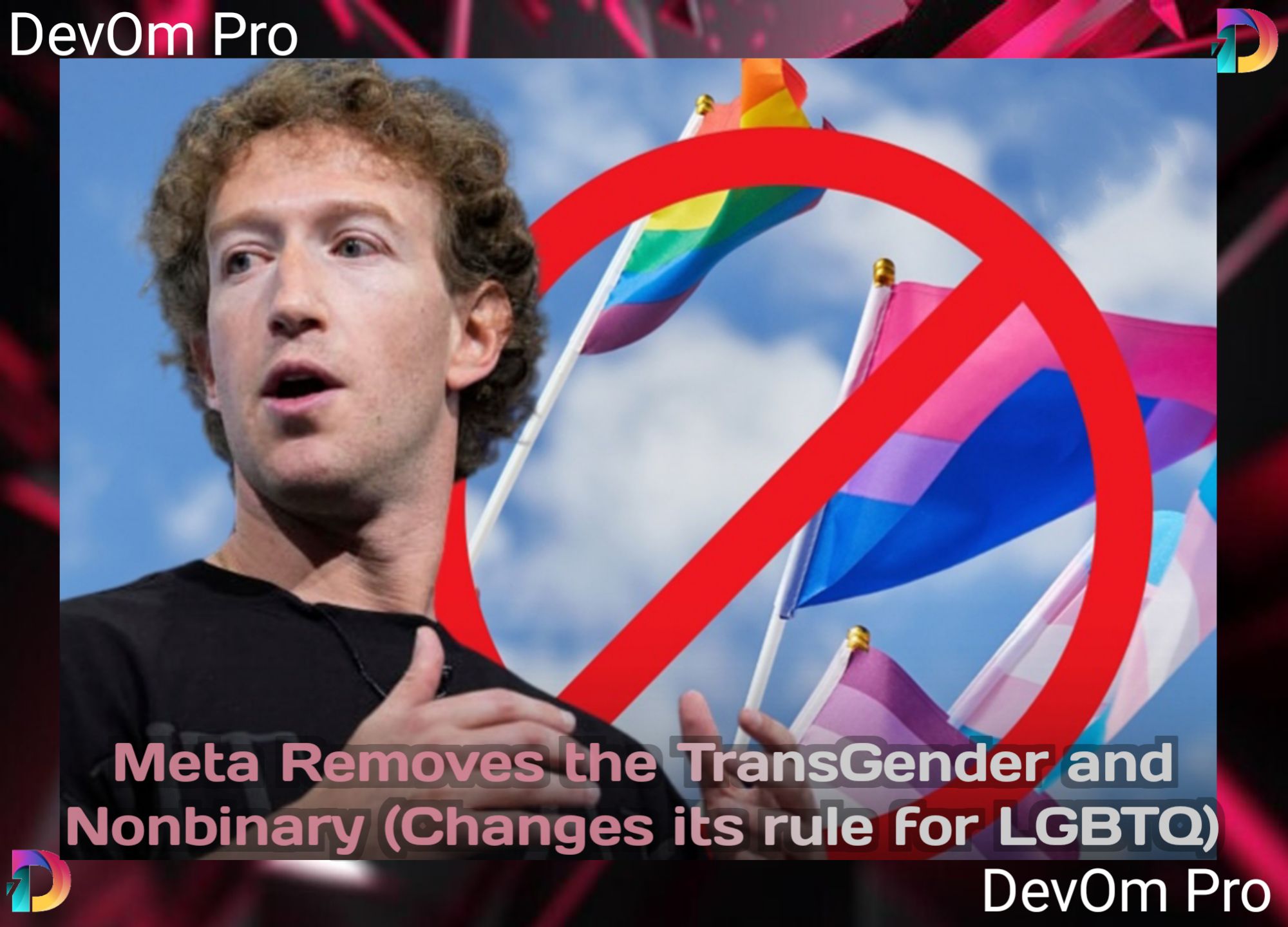Meta’s recent update to its content moderation policies marks a significant shift in the company’s approach to handling online discourse. This move, which includes both the cessation of professional fact-checking and alterations to its hateful conduct policy, has ignited widespread debate about its implications for freedom of expression, the protection of marginalized groups, and the role of social media platforms in moderating public conversations.
Abandoning Professional Fact-Checking
The decision to discontinue professional fact-checking has raised eyebrows. Historically, Meta, like other social media giants, has leaned on third-party organizations to verify the accuracy of information shared on its platforms. This practice aimed to mitigate the spread of misinformation and ensure a more informed user base. However, the company’s announcement indicates a strategic pivot, suggesting a preference for decentralizing the responsibility of discerning fact from fiction.
Proponents of this move argue that fact-checking often carried biases depending on the organization involved, leading to claims of censorship or favoritism. By removing this layer, Meta might be aiming to present itself as a neutral arbiter, allowing users to engage in unrestricted dialogue. Critics, however, worry that this change will exacerbate the proliferation of false information, potentially destabilizing public discourse and eroding trust in online platforms as reliable sources of information.
Changes to the Hateful Conduct Policy
Even more contentious are the changes to Meta’s hateful conduct policy, particularly the allowance of content previously classified as hate speech. The updates include permitting statements that dehumanize women, transgender, and non-binary individuals by referring to them as “household objects or property” or as “it.” Furthermore, the revised policy permits “allegations of mental illness or abnormality” based on gender or sexual orientation, citing the need to accommodate political and religious discussions around topics like transgenderism and homosexuality.
This shift has sparked significant backlash from advocacy groups, civil rights organizations, and individuals who view it as a step backward in fostering an inclusive online environment. Critics argue that allowing such content legitimizes harmful stereotypes, reinforces systemic discrimination, and undermines efforts to protect vulnerable communities from online abuse.
Balancing Free Speech and Harm Prevention
Meta’s justification for the policy changes appears rooted in the tension between free speech and content moderation. The company’s new approach aligns with the belief that platforms should facilitate open dialogue, even if that dialogue includes controversial or offensive views. By allowing content that some might find objectionable, Meta positions itself as a platform that values free expression above all.
However, this perspective raises critical questions: Where should the line be drawn between free speech and hate speech? How can a platform ensure that its commitment to open discourse does not come at the expense of marginalized groups’ safety and dignity? Critics argue that the new policy prioritizes the rights of those who wish to express controversial opinions over the well-being of those targeted by such rhetoric.
The Broader Implications
The changes to Meta’s policies may have far-reaching consequences for how users interact on its platforms and how society perceives the boundaries of acceptable online behavior.
- Impact on Marginalized Communities: The decision to allow dehumanizing language and accusations of mental illness against LGBTQ+ individuals and women may create a hostile online environment for these groups. Advocacy organizations warn that such policies could embolden individuals to engage in harmful rhetoric, leading to increased cyberbullying, harassment, and real-world consequences.
- Shifting Norms for Content Moderation: Meta’s updates could set a precedent for other social media companies, potentially influencing industry standards. If competitors adopt similar policies, the landscape of online content moderation could shift significantly, redefining what constitutes acceptable speech on the internet.
- Legal and Regulatory Challenges: The changes may attract scrutiny from governments and regulators, particularly in regions with strict laws against hate speech and discrimination. Meta could face legal challenges or fines for content allowed under its new policy, adding complexity to its operations in different jurisdictions.
- Erosion of Trust: For many users, these updates may signal a diminished commitment to combating hate speech and misinformation, potentially eroding trust in Meta’s platforms. This loss of trust could result in reduced user engagement, advertiser pullback, and reputational damage.
Public and Stakeholder Reactions
Reactions to Meta’s policy changes have been polarized. Advocacy groups have condemned the move, with many urging Meta to reconsider its stance to ensure the safety and dignity of all users. Critics emphasize that while free speech is a fundamental right, it should not come at the cost of enabling harmful or dehumanizing rhetoric.
Conversely, some free speech advocates applaud Meta’s decision, viewing it as a bold stand against the perceived overreach of content moderation. They argue that a truly free and open platform must tolerate a wide range of opinions, even those that are controversial or offensive, to foster meaningful dialogue and progress.
Navigating the Future of Content Moderation
Meta’s policy updates underscore the challenges social media companies face in navigating the complexities of content moderation. Balancing the principles of free expression with the need to prevent harm requires nuanced policies and a commitment to fostering constructive dialogue.
As the changes roll out, Meta’s ability to address the following challenges will be critical:
- Monitoring Abuse: While the policy changes aim to encourage open discourse, Meta must implement robust mechanisms to monitor and address potential abuse. This includes ensuring that harmful content does not spiral into coordinated harassment campaigns or incitement to violence.
- Engaging Stakeholders: Meta would benefit from engaging with advocacy groups, policymakers, and users to refine its policies and ensure they strike the right balance. Collaborative approaches can help address concerns while maintaining a commitment to free expression.
- Transparent Enforcement: Clear guidelines and transparent enforcement mechanisms are essential to avoid accusations of bias or inconsistency. Users must understand the boundaries of acceptable speech and have access to effective reporting tools to flag harmful content.
- Investing in Digital Literacy: To mitigate the potential spread of misinformation, Meta could invest in initiatives that promote digital literacy and critical thinking skills among its users. Educating users about identifying and challenging false information can empower individuals to engage responsibly on the platform.
Conclusion
Meta’s recent updates to its content moderation policies reflect a significant shift in the company’s approach to managing online discourse. While the changes aim to promote free expression and accommodate diverse viewpoints, they also raise important questions about the role of social media platforms in combating hate speech and protecting marginalized groups.
As these policies take effect, Meta’s ability to navigate the challenges of fostering open dialogue while preventing harm will be closely watched by users, regulators, and industry peers. Whether these changes ultimately lead to a more inclusive and informed online environment or exacerbate existing issues will depend on how Meta implements and enforces its new guidelines in the coming months.




